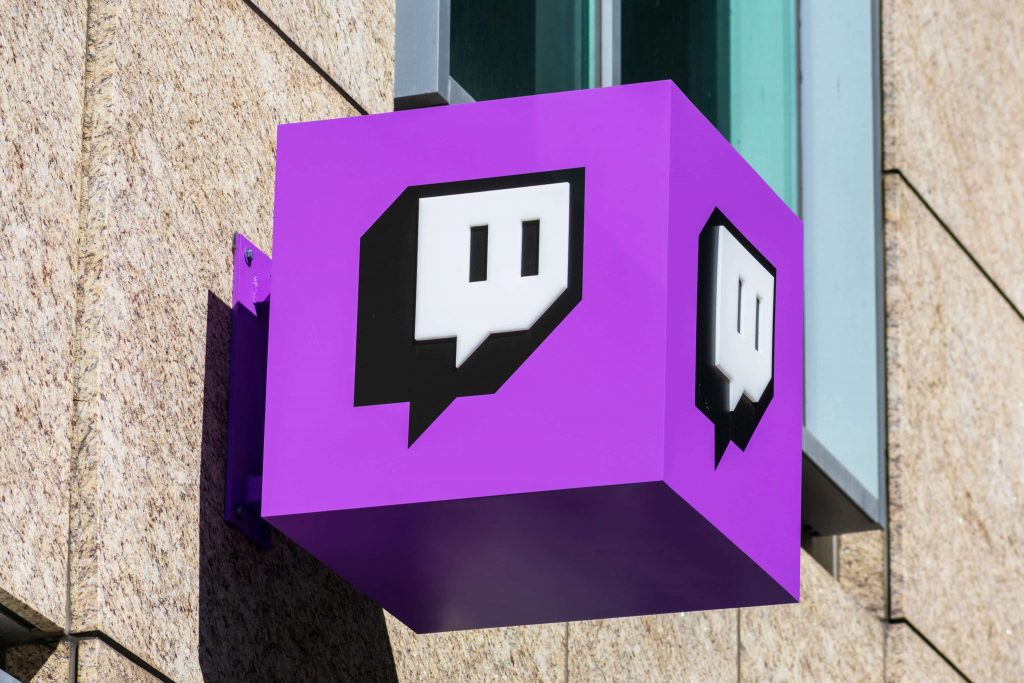
The video game streaming platform Twitch, which was purchased by Amazon in 2014, recently released an update to its Branded Content Guidelines, which includes prohibition of sponsorships of cannabis products or brands.
Initially, Twitch released new rules on branded content on June 6. It prohibited “burned in” logos on streamer videos and displays. The announcement was met with fierce criticism from Twitch streamers who voiced their opinions about how the change would affect their ability to have direct relationships with sponsors.
By June 7, Twitch released a statement explaining that they would be removing the guidelines. “Yesterday, we released new Branded Content Guidelines that impacted your ability to work with sponsors to increase your income from streaming. These guidelines are bad for you and bad for Twitch, and we are removing them immediately,” Twitch wrote on Twitter. “…We missed the mark with the policy language and will rewrite the guidelines to be clearer. Thank you for sharing your concerns, and we appreciate the feedback. We’ll notify the community once we have updated the language,” it wrote.
Twitch’s current Branded Content Guidelines explain that branded content is defined as “streamers featuring products or services based on an exchange of value, such as being paid or receiving goods or services.” This ranges from product placements, endorsements, channel sponsorships, and more. Under the banned product categories, Twitch describes that it does not allow any services that are in violation of its Community Guidelines, such as risky gambling products, unauthorized sharing of private information, and “Illegal Products and Services, such as selling, advertising, or trafficking drugs, firearms, counterfeit goods, or other illegal goods and services.”
It further mentions that streamers may not feature sponsored content that includes weapons, adult-oriented items, tobacco products, political content, and “Cannabis-related products, including vaping and delivery.”
According to content creator JimTanna, who streams on Twitch and releases videos on YouTube, addressed the mention of a ban of cannabis sponsorships, but the continued allowance for alcohol brand sponsorship. “But what is weird, and what is allowed—you can still promote alcohol. I just don’t understand what the hell is going on. We can promote alcohol but we can’t promote legal cannabis?” JimTanna said. “…Let the content creators live. Let us smoke our weed. Let us promote the products.”
Although Twitch announced that it wouldn’t follow through with its planned policy, it still sent out an email requiring all Twitch Partners to sign the updated agreement by their “next contract effective date,” which includes the updated Brand Content Guidelines. If they choose not to accept the terms, their “current contract will terminate” and have their Twitch Partner status reduced to Twitch Affiliate until they choose to accept the policy terms. Should they seek to leave the platform entirely in search of streaming on a competition streaming platform, an affiliate would be forced to pay $25 to Twitch in order to do so.
JimTanna adds that these new rules do not prevent streamers from smoking on their streams freely, but it is specifically geared toward sponsorships of cannabis-related products.
Previously, Twitch implemented other changes to prevent usernames with “references to hard drugs, recreational drugs, and drug abuse,” with the exception of “alcohol, tobacco, and marijuana” in February 2022. Amazon itself has previously taken steps to update its policy on drug testing in September 2021, and also lobbied for the support of cannabis legalization on a federal level in January 2022.
Over the past few years, other companies have updated their policies on cannabis. Twitter has been refining its policies recently, such as its allowance of cannabis-related ads including THC and CBD. Apple removed and banned vaping-related apps from the iOS store back in November 2019, but an update in 2021 ended any bans that prevented cannabis companies from doing business via the app store.
Read full article on High Times

